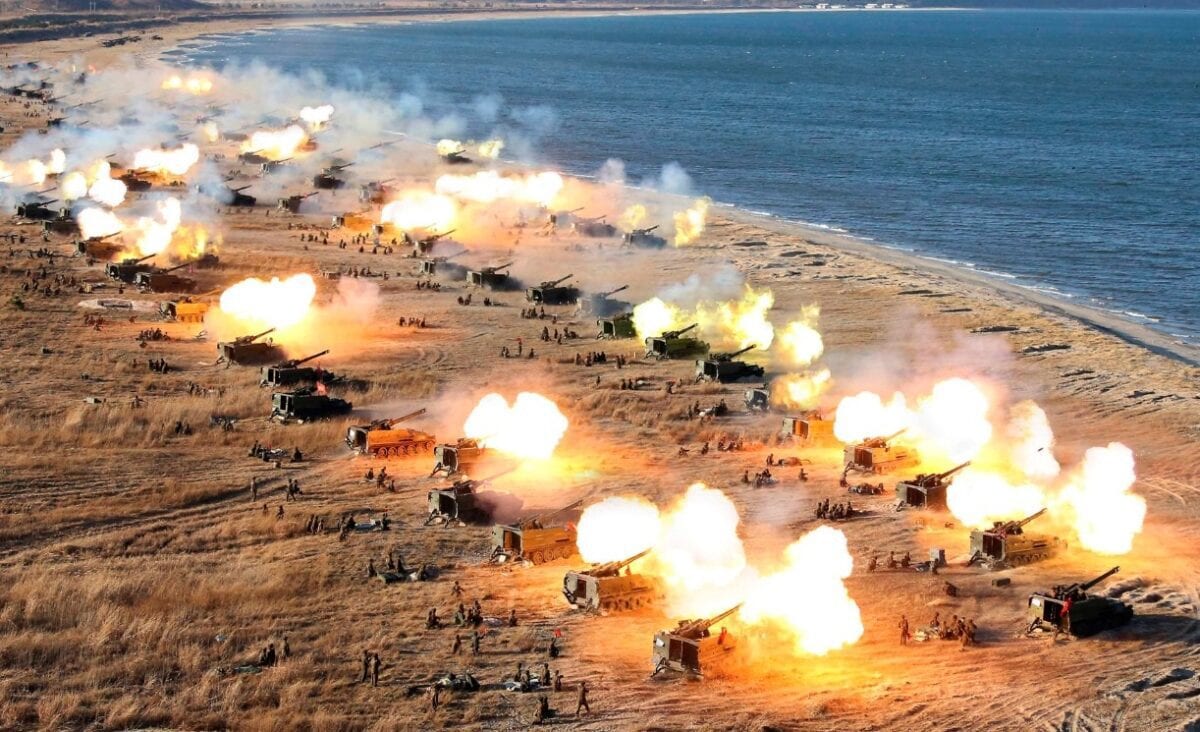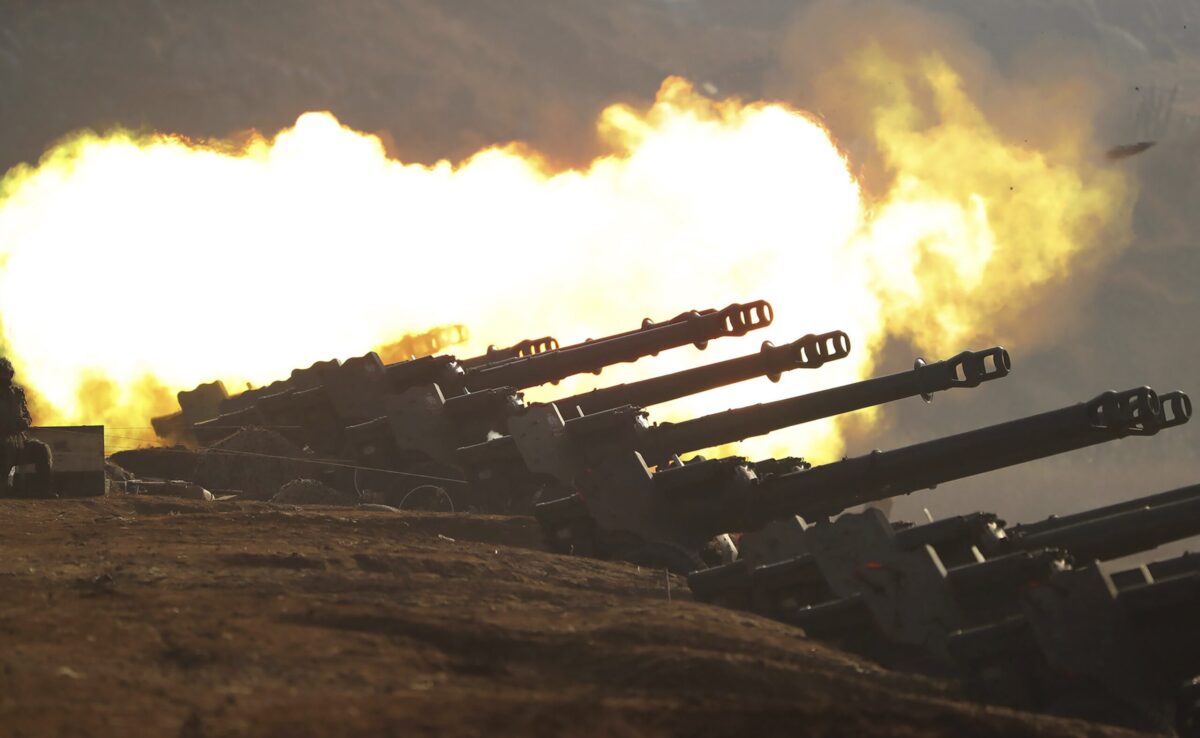For much of its early history, the Hermit Kingdom known as North Korea relied on outside support from the Soviet Union and China. How the tables have turned.
On Wednesday, the United States accused North Korea of secretly aiding Russia by sending a “significant number” of artillery shells to help in its war in Ukraine.
“We’re not talking dozens here. It’s a significant number of artillery shells,” National Security Council spokesman John Kirby told reporters during the daily briefing.
“This is a sign of not only the degree to which North Korea is willing to continue to bolster support Russia, but a sign of Russia’s own defense articles, shortages and needs,” Kirby added.
The shipments of ordnance from North Korea, as well as the drones and missiles that Russia has been receiving from Iran, highlight the dire straits that the Kremlin now finds itself in. It is further evidence that Moscow’s stockpiles of conventional artillery shells dwindled during the eight months of the war.
Armories of Tyranny
During the Second World War, Moscow had been dependent on military hardware from the United States – the “arsenal of democracy” – and now, instead, it is relying on aid from the armories of tyranny as it faces sanctions.
This isn’t the first time that the Kremlin has received such aid from the Hermit Kingdom. In September, Pyongyang denied that it was supplying Moscow with millions of rockets and artillery shells, yet, U.S. officials at the time said it was expected that Russia would try and purchase additional equipment from North Korea.
Pyongyang has reportedly tried to hide the recent shipments by making it appear as if the ammunition was bound for countries in the Middle East or North Africa.
U.S. officials did not provide evidence to support the latest allegations. Moreover, the declassified intelligence did not provide details about how many weapons or what types of ordnance were part of the most recent shipments, or even how they would be paid for.
“We will continue to monitor whether these shipments are received,” Kirby added, and said that Russia would likely continue to look to pariah governments including North Korea and Iran to sustain its aggressive war in Ukraine “amid supply shortages and the efficacy of international sanctions.”
Already hundreds of attack drones from the Islamic Republic have been used in the recent strikes not only on military targets but also on Ukrainian cities and civilian infrastructure. Tehran has repeatedly denied sending drones or other weapons to aid the Russian war effort.

Image: KCNA/North Korean State Media.
Kirby told reporters that while the aid from Iran and North Korea is “not going to change the course of the war,” it could help Russia’s effort in its grinding artillery fight on the front lines.And in the process allow Moscow to maintain pressure on Kyiv as winter approaches.
A Senior Editor for 19FortyFive, Peter Suciu is a Michigan-based writer. He has contributed to more than four dozen magazines, newspapers, and websites with over 3,000 published pieces over a twenty-year career in journalism. He regularly writes about military hardware, firearms history, cybersecurity, and international affairs. Peter is also a Contributing Writer for Forbes. You can follow him on Twitter: @PeterSuciu.
Want More 19FortyFive articles, news, and analysis on the top military, defense, national security, as well as politics and economics news? Make sure to follow us on Google News, Flipboard, YouTube, Facebook, Twitter, and Linkedin. Also, please don’t forget to sign up for our newsletter here. You can also find our code of publishing ethics and standards here.

